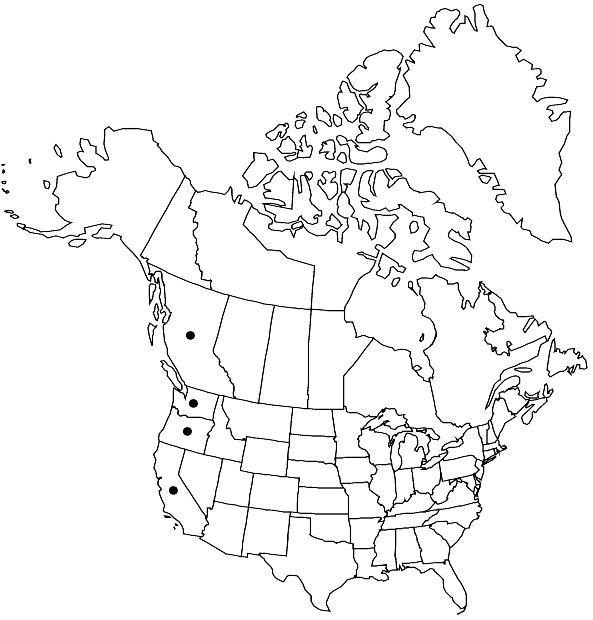Difference between revisions of "Grimmia lisae"
Muscol. Ital. Spic., 15. 1837,.
FNA>Volume Importer |
imported>Volume Importer |
||
| (2 intermediate revisions by 2 users not shown) | |||
| Line 63: | Line 63: | ||
|publication year= | |publication year= | ||
|special status= | |special status= | ||
| − | |source xml=https:// | + | |source xml=https://bitbucket.org/aafc-mbb/fna-data-curation/src/2e0870ddd59836b60bcf96646a41e87ea5a5943a/coarse_grained_fna_xml/V27/V27_349.xml |
|subfamily=Grimmiaceae subfam. Grimmioideae | |subfamily=Grimmiaceae subfam. Grimmioideae | ||
|genus=Grimmia | |genus=Grimmia | ||
Latest revision as of 21:25, 5 November 2020
Plants in dense to loose tufts, olivaceous, brownish to blackish proximally. Stems 1–4 cm, central strand present. Leaves erect and appressed when dry, recurved to squarrose when moist, broadly lanceolate, tapering to an acute apex, 1.5–2.5 × 0.4–0.6 mm, keeled, margins recurved on one or both sides, awns absent to rather long, stout and denticulate, costa reniform, projecting on dorsal side, median layer of stereids present; basal juxtacostal laminal cells short-rectangular to occasionally elongate, straight to slightly sinuose, thin- to thick-walled; basal marginal laminal cells quadrate to short-rectangular, thickened transverse walls; medial laminal cells oblate to rounded-quadrate, straight, thick-walled; distal laminal cells 1-stratose with 2-stratose ridges, margins 2-stratose. Gemmae in clusters, multicellular, occasionally present in leaf axils. Sexual condition dioicous. Seta arcuate, 3–4.5 mm. Capsule occasionally present, exserted, ovoid, brown, shiny, weakly striate, exothecial cells thin-walled, annulus present, operculum rostrate, peristome teeth orange, fully-developed to irregularly cleft at apex, papillose. Calyptra mitrate.
Habitat: Dry acidic to basic rock
Elevation: low to moderate elevations (60-1000 m)
Distribution

B.C., Calif., Oreg., Wash., Mexico, Eurasia, n Africa, Pacific Islands (Hawaii).
Discussion
Grimmia lisae is a thermophilous species with a preference for subtropical coastal areas. In North America, it occurs along the west coast, from Vancouver Island south to Mexico. From that region, it has been described frequently as a new species. It is closely related to G. trichophylla, but is distinguished by somewhat shorter and broader leaves that are straight and appressed when dry and recurved to squarrose when moist, and by a reniform costa. Furthermore, it is characterized by a grass-green mid leaf areolation with small, rounded, frequently oblate cells with straight walls.
Selected References
None.